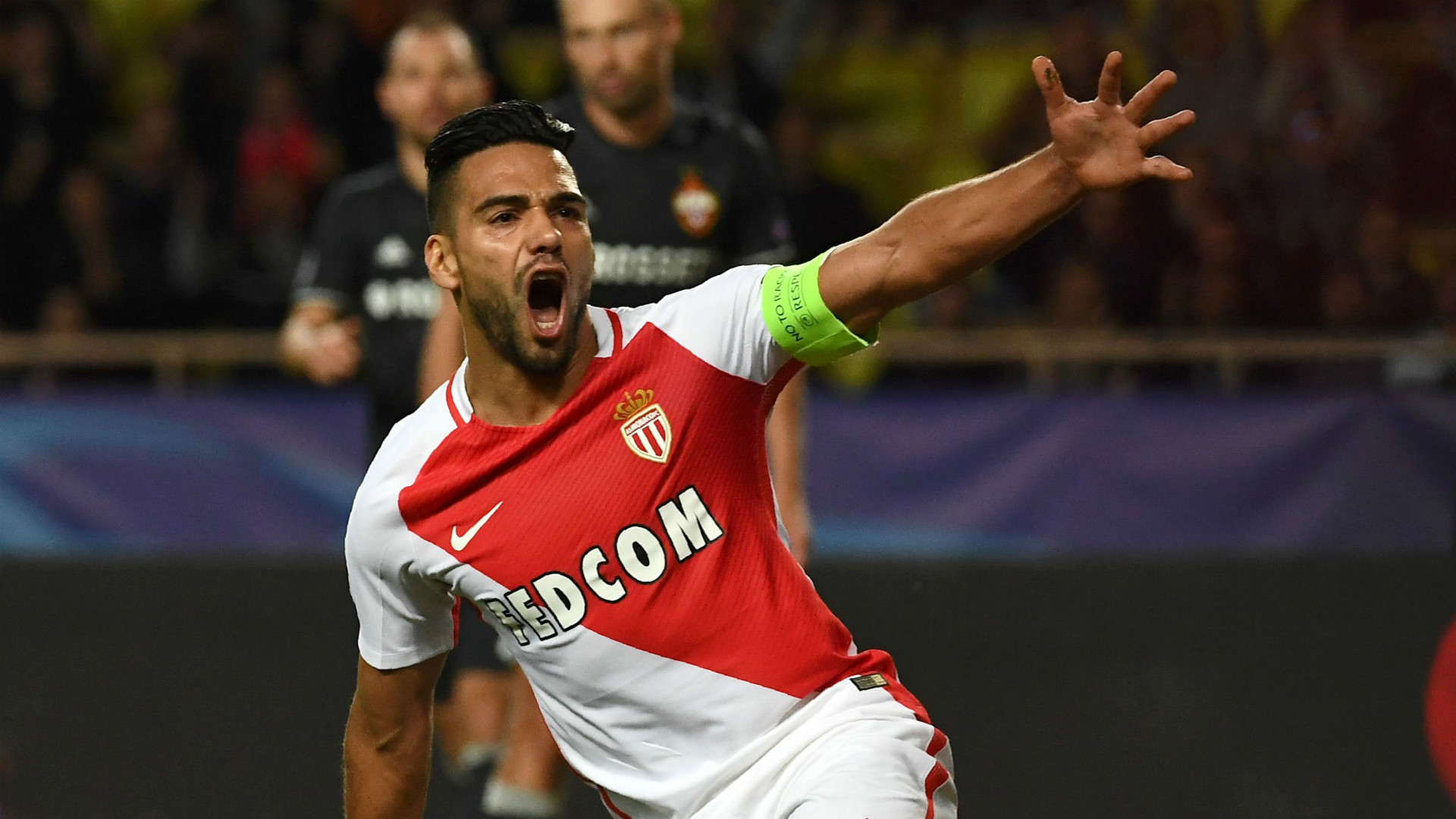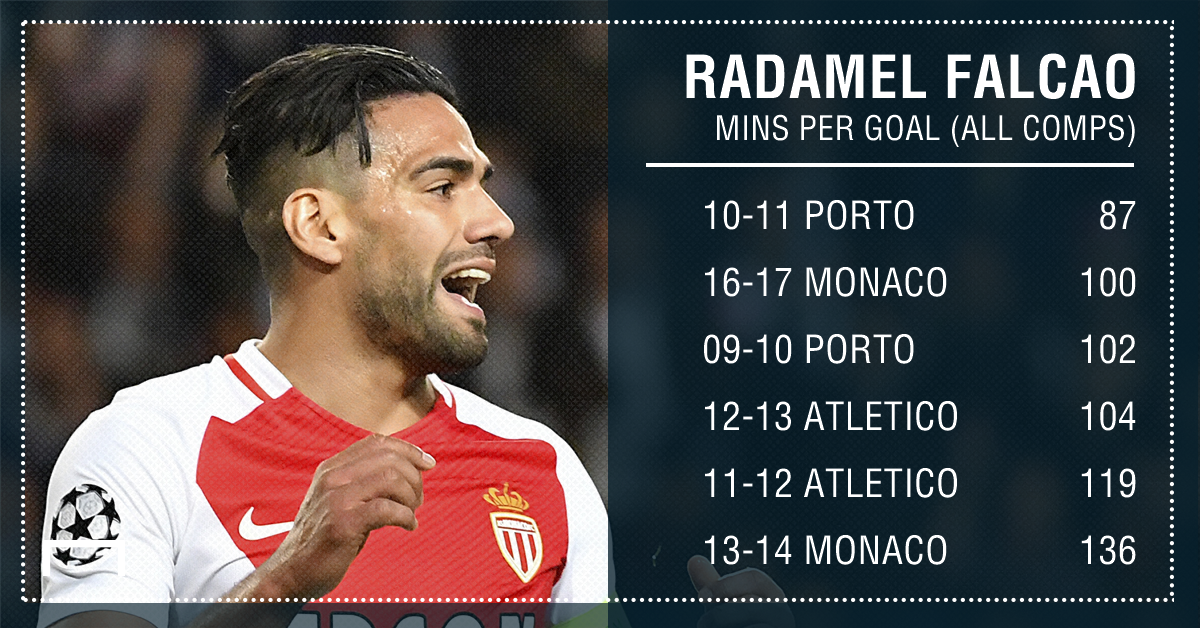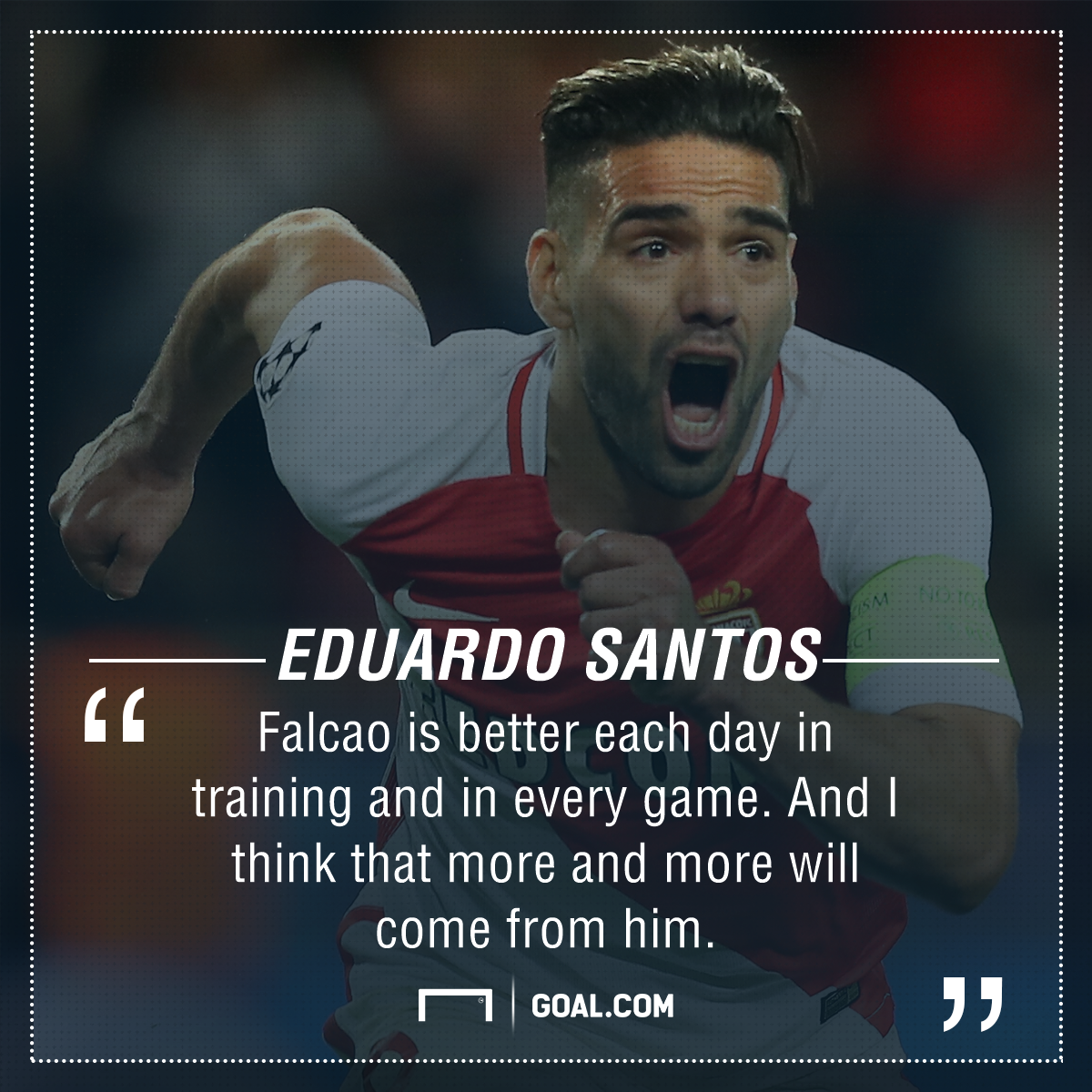The Colombia ace spent two years out of form, with many critics writing him off, but this season the 31-year-old has returned to his peak level
The 31-year-old was written off by critics after two failed loan spells in the Premier League, during which time he found the net only seven times in total, but he has enjoyed a new lease of life having returned to the principality on a full-time basis.
Much of his rejuvenation is thanks to the work of renowned physiotherapist Eduardo Santos, who has hailed the South American striker as being “back”.
At Atletico Madrid, the Colombia international was saluted as the greatest penalty-box striker in the world, a scorer of all kinds of goals and capable of fitting into any side. His €60 million move to Fontvieille came as a shock, despite significant investment from Dimitri Rybolovlev, yet the ace poacher’s career was sent into a tailspin when he was injured against amateur outfit Chasselay in a Coupe de France tie in January 2014.
He crumbled to the ground, evidently in agony. The injury proved to be serious: there was a lesion in his anterior cruciate ligament.
Robbed of the opportunity to play in the World Cup of 2014 due to the problem, Falcao returned to the field after six months on the sidelines, appearing to hit his stride immediately as he found the net for Monaco from the penalty spot on the opening day of the 2014-15 Ligue 1 season.
But Falcao was not for staying in France. After also finding the target against Nantes a fortnight later, he was subject to a loan move to Manchester United. Injury problems prevented him from being a regular fixture in Louis van Gaal’s side, and a season later he suffered similar woe at Chelsea, leading to questions over his long-term top-level future.

“I started working with Falcao in the first half of 2016,” Santos told Goal. “He is a very mentally strong person, extremely determined. That’s why he decided to seek my advice. He had a goal, but physically something was missing.”
The mental strength of the striker was vital in regaining his best level after two and a half years of disruption to a career that appeared to be hanging in the balance.
“You need to focus on three pillars – the body, the mind and the soul,” Santos continued. “You need to treat a player to have a very strong knee, but also a strong mind. Then he will be able to play football at the same level and without fear.
“Playing time is very important to regaining your full fitness back. But you need to be ready to play those important minutes. If not, it can create more frustration and fear.
“You need to closely monitor all of your levels, both physically and mentally.”
Since working under Santos, the forward has enjoyed a rebirth, best typified by his second goal against Manchester City in the first leg of the Champions League last-16 tie. After brushing off John Stones, he sent a glorious chip over Willy Caballero - the type of strike produced only by the very best at the peak of their confidence.

The physio has said that the key to his job is to treat each case as a unique case.
“Every program and every rehabilitation I do is different and individualised because every person is different,” he said. “I develop a tailor-made program for every athlete that I work with. That’s why it is something very personal and I cannot detail it.
“I do not compare my patients, I respect the individuality of each one.”
Nevertheless, Santos believes that Falcao is back towards his pre-injury levels – and says he expects the striker will only get stronger.
“I think he is flying and scoring a lot of goals. He is back,” he stated. “We can’t forget that he was without playing time for a long, long time.
“In my opinion, he is better each day in training and in every game. And I think that more and more will come from him.”

The striker has scored 28 times in 41 outings for Monaco this season, hitting the net on average once every 100 minutes on the field. His strike rate at the very top level has been particularly formidable, with seven goals arriving in 10 Champions League outings.
Indeed, though he may actually have found the net less than in his most prolific seasons, only during the 2010-11 campaign with Porto has the striker enjoyed a better minutes-per-goal ratio since moving to Europe.
Falcao is, indeed, back, and the footballing world should pay a debt of gratitude to Santos for helping to ensure one of the generation’s great goal-getters did not fade prematurely.





